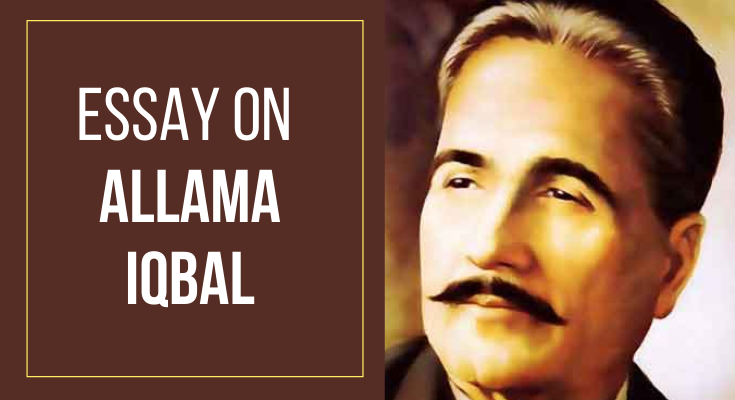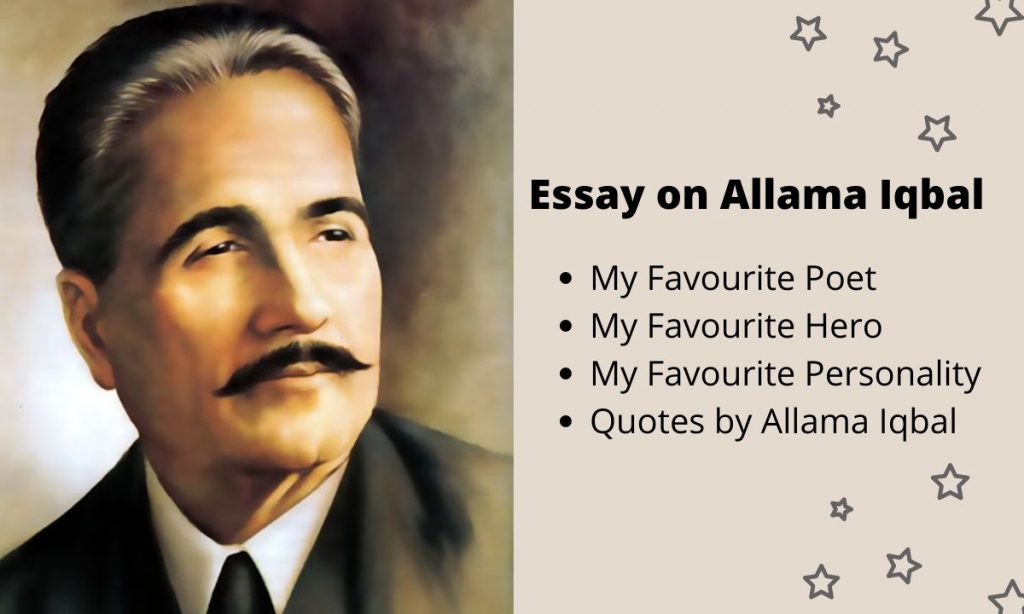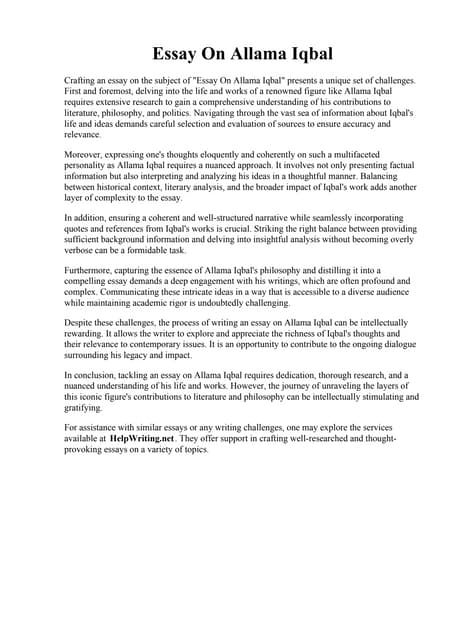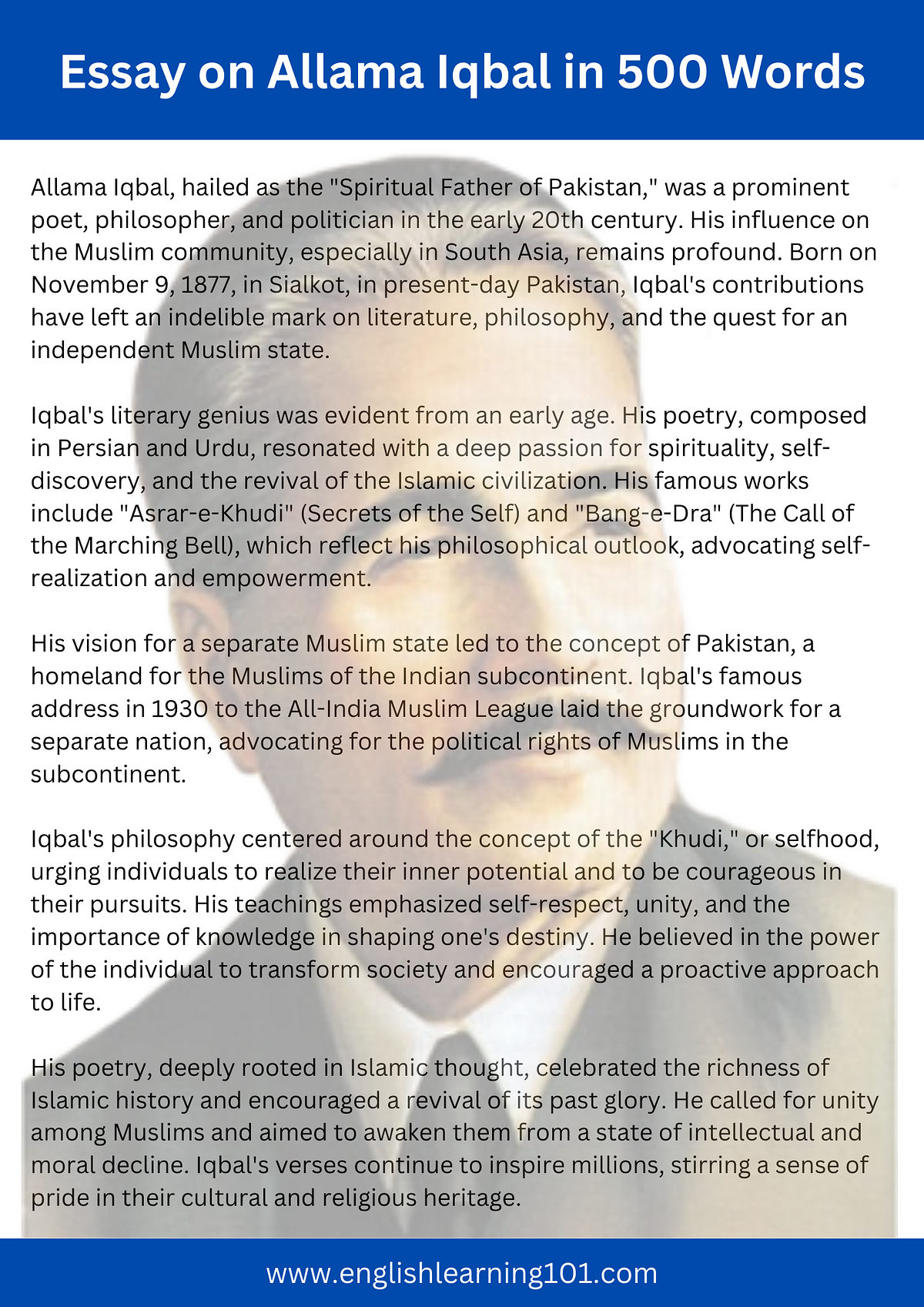Short And Easy Essay On Allama Iqbal In English

Imagine a young boy, eyes bright with curiosity, sitting under the shade of a mulberry tree in Sialkot, Punjab. The air is thick with the scent of jasmine and the sounds of children playing. This boy, destined for greatness, would grow up to become Allama Muhammad Iqbal, a philosopher, poet, and visionary whose words would ignite the spirit of a nation.
Iqbal's profound impact on the Indian subcontinent's political and intellectual landscape is undeniable. His poetry and philosophy served as a crucial catalyst for the creation of Pakistan. His legacy continues to inspire millions around the world.
Born on November 9, 1877, in Sialkot, British India (now Pakistan), Allama Iqbal received his early education in the traditional Islamic manner. He excelled in languages, philosophy, and history.
He later pursued higher education at Government College, Lahore, where he was deeply influenced by Professor Sir Thomas Arnold, a renowned orientalist. This mentorship shaped his intellectual trajectory.
Iqbal's academic journey took him to Europe, where he studied at Cambridge University, Lincoln's Inn (London), and the University of Munich, earning degrees in philosophy and law. His doctoral thesis on the development of metaphysics in Persia earned him international recognition.
Upon his return to India, Iqbal began practicing law but soon dedicated himself to poetry and philosophical thought. His early poems, imbued with patriotic fervor, celebrated India's rich cultural heritage and called for unity among its diverse communities.
His perspective shifted significantly in the early 20th century. He grew increasingly concerned about the socio-political marginalization of Muslims in India. This concern led him to advocate for a separate political identity for Muslims to safeguard their rights and cultural heritage.
In his presidential address to the All-India Muslim League in 1930 at Allahabad, Iqbal articulated his vision for a separate Muslim state in northwestern India. This address is considered a pivotal moment in the history of the Pakistan Movement.
"I would like to see the Punjab, North-West Frontier Province, Sind and Baluchistan amalgamated into a single State. Self-government within the British Empire, or without the British Empire, the formation of a consolidated North-West Indian Muslim State appears to me to be the final destiny of the Muslims, at least of North-West India."
Iqbal's poetry is a powerful blend of philosophical insight, spiritual yearning, and social commentary. His works, written primarily in Urdu and Persian, explore themes of self-discovery, the relationship between God and humanity, and the importance of individual action in shaping one's destiny.
Asrar-e-Khudi (Secrets of the Self) and Rumuz-e-Bekhudi (Mysteries of Selflessness) are among his most famous philosophical poems. They emphasize the importance of developing a strong individual identity and dedicating oneself to the betterment of society.
Bang-e-Dara (The Call of the Marching Bell), Bal-e-Jibril (Gabriel's Wing), and Zarb-i-Kalim (The Rod of Moses) are collections of his Urdu poetry that capture the essence of his poetic genius.
Javed Nama, inspired by Dante's Divine Comedy, is a Persian poem that takes the reader on a spiritual journey through different realms of existence. The poem reflects Iqbal's profound understanding of Islamic philosophy and his vision for the spiritual evolution of humanity.
Allama Iqbal passed away on April 21, 1938, in Lahore. But his legacy continues to resonate across generations.
He is revered as the "Poet of the East" and the "Spiritual Father of Pakistan." His message of self-reliance, intellectual awakening, and social justice remains relevant in today's world.
His work encourages critical thinking, inspires hope, and promotes a sense of collective identity. Iqbal's vision serves as a reminder of the power of words to shape history and inspire positive change.


















